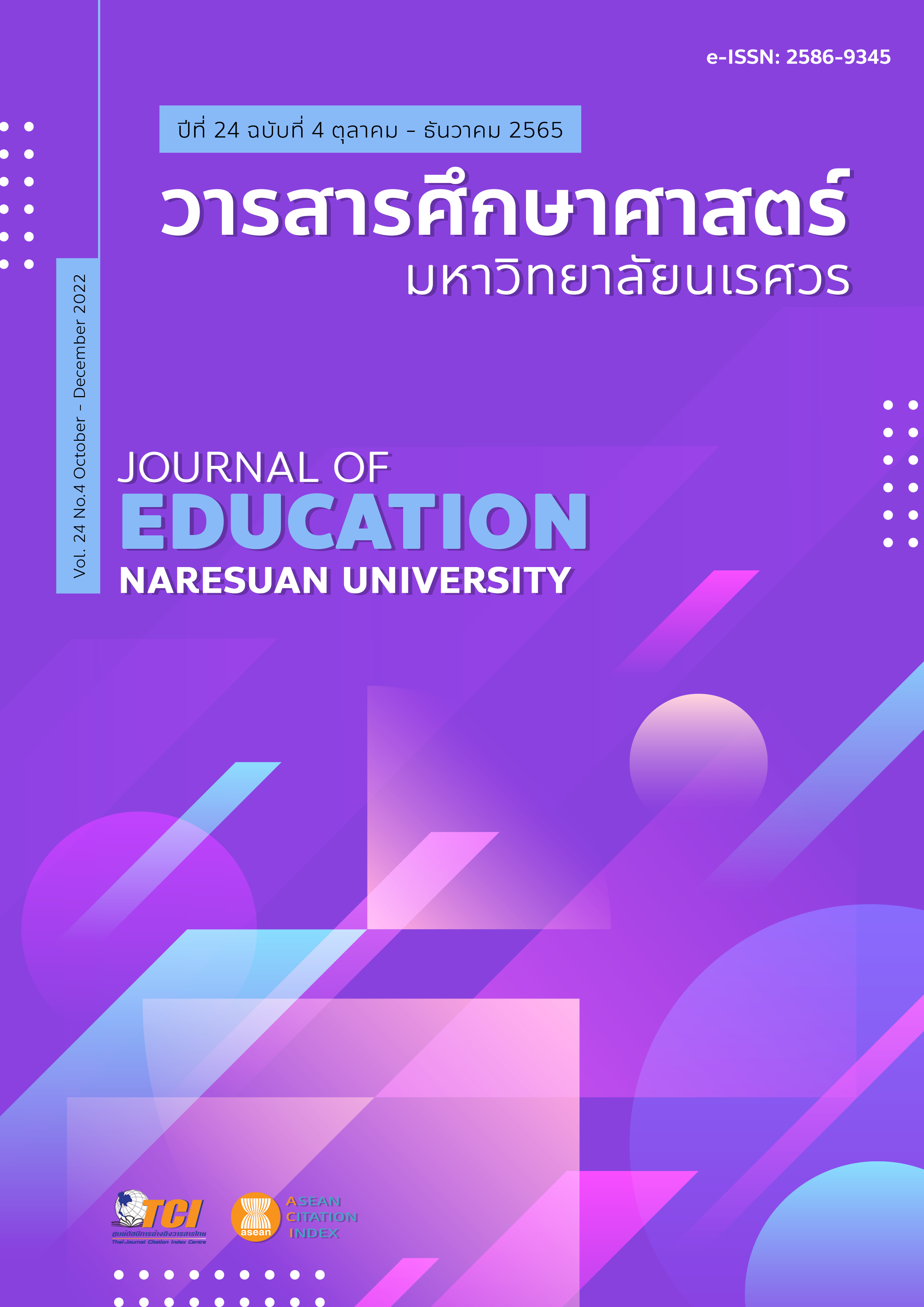LEARNING ACTIVITY DEVELOPMENT USING CASE STUDY FROM MEDIA IN DAILY LIFE ON CONSUMPTION BEHAVIORS TO ENHANCE REFLECTIVE THINKING ABILITY FOR GRADE 9 STUDENTS การพัฒนากิจกรรมการเรียนรู้โดยใช้กรณีศึกษาจากสื่อในชีวิตประจำวัน เรื่อง พฤติกรรมการบริโภค เพื่อเสริมสร้างความสามารถในการคิดไตร่ตรอง สำหรับนักเรียนชั้นมัธยมศึกษาปีที่ 3
Main Article Content
Abstract
The purposes of this research were 1) to create and study the efficiency of learning activities by using of case study from the media in daily life on consumption behaviors, in order to enhance grade 9 students’ reflective thinking skills as the criteria at 75/75, 2) to experiment the using of the learning activities by 2.1) measuring the students' reflective thinking skills, and 2.2) comparing their reflective thinking skills between pre-learning and post-learning. The samples were 30 grade 9 students of Chakungrao Wittaya School, Mueang District, Kamphaeng Phet Province. The instruments were 4 lesson plans for using of learning activities by using case study from the media in daily life, and pre-test and post-test evaluation forms. The results of research were as follows: 1) The learning activities by using case study from media in daily life on Consumption Behaviors consisted of learning activities amount 3 steps as follows: (1) proposing a case studies by using the media; (2) studying the case studies and make a discussion; and (3) summarizing the learning results. The developed learning activities were appropriate at the highest level (4.58) and the efficiency was at 76.02/75.63 as the setting criteria. 2) The experiment of the using the learning activities indicated that: 1) After learning, the students’ post-reflective thinking ability had mean scores was at 75.13%. 2) Reflective thinking ability of students after learning was higher than before learning with statistical significance at the level of .05.
Article Details

This work is licensed under a Creative Commons Attribution-NonCommercial-NoDerivatives 4.0 International License.
The owner of the article does not copy or violate any of its copyright. If any copyright infringement occurs or prosecution, in any case, the Editorial Board is not involved in all the rights to the owner of the article to be performed.
References
Ampai, W. (2017). The effects of learning management based on a situated learning using authentic materials to enhance reflective thinking ability in consumption of grade 7 students (Master thesis). Phitsanulok: Naresuan University. [in Thai]
Hirunro, L. (2002). Lifestyle, media exposure and purchasing behavior of older consumers in Bangkok (Master thesis). Bangkok: Chulalongkorn University. [in Thai]
Hmelo, D., E., & Ferrai, M. (1997). The problem – based learning tutorial: Cultivating higher order thinking skills. Journal for the Education of the Gifyed, 20(4), 401-422.
Jitsatikul, N. (2014). Media exposure, consumer behavior and merchandise consumption in Otaku culture (Master thesis). Bangkok: National Institute of Development Administration. [in Thai]
Khammani, T., Kanjanawasee, S., Chawakirtipoon, N., Dachakupt, P., & Vidhayasirinun, S. (1997). Learning for develop Thinking process. Journal of Education Studies, 26(1), 35-60. [in Thai]
Khemmani, T. (2014). Science of Teaching Pedagogy. Bangkok: Chulalongkorn University Press. [in Thai]
Kaewurai, W. (1998). The development of the instructional model for general methods of teaching subject emphasizing cases to enhance teacher students' reflective thinking ability in the science of teaching (Doctoral dissertation). Bangkok: Chulalongkorn University. [in Thai]
King, P., & Kitchener, K. (1994). Developing reflective judgment. United States: Jossey-Bass.
Punpersert, S. (2007). Developing learning activities by using case study in social studies on law in everyday life for grade 7 students (Master thesis). Maha Sarakham: Mahasarakham University. [in Thai]
Prompet, P. (2017). Developing learning activities by using case study from media in daily life on the law of personal right protection to enhance problem solving competencies for grade 7 students (Master thesis). Phitsanulok: Naresuan University. [in Thai]
Schön, D. A. (1987). Educating the reflective practitioner. San Francisco, CA: Jossey-Bass.
Shin, M. (1998). Promoting students’ self – regulation ability: Guidelines for instructional design. Educational Technology, 12(1), 38-43.
Thammasathit, P. (2009). Effects of web-based cooperative learning with case study by using student teams achievement division and team game tournament upon problem-solving ability and learning achievement in social studies, religion and culture subject group of ninth grade student. Bangkok: Chulalongkorn University. [in Thai]
Wichawut, S. (2013). Critical thinking. Journal of HR Intelligence, 8(2), 78-85. [in Thai]


